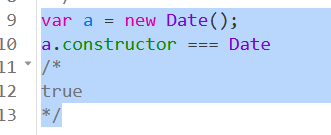For all types I cooked up an Object prototype function. It may be of use to you
Object.prototype.typof = function(chkType){
var inp = String(this.constructor),
customObj = (inp.split(/\({1}/))[0].replace(/^\n/,'').substr(9),
regularObj = Object.prototype.toString.apply(this),
thisType = regularObj.toLowerCase()
.match(new RegExp(customObj.toLowerCase()))
? regularObj : '[object '+customObj+']';
return chkType
? thisType.toLowerCase().match(chkType.toLowerCase())
? true : false
: thisType;
}
Now you can check any type like this:
var myDate = new Date().toString(),
myRealDate = new Date();
if (myRealDate.typof('Date')) { /* do things */ }
alert( myDate.typof() ); //=> String
[Edit march 2013] based on progressing insight this is a better method:
Object.prototype.is = function() {
var test = arguments.length ? [].slice.call(arguments) : null
,self = this.constructor;
return test ? !!(test.filter(function(a){return a === self}).length)
: (this.constructor.name ||
(String(self).match ( /^function\s*([^\s(]+)/im)
|| [0,'ANONYMOUS_CONSTRUCTOR']) [1] );
}
// usage
var Some = function(){ /* ... */}
,Other = function(){ /* ... */}
,some = new Some;
2..is(String,Function,RegExp); //=> false
2..is(String,Function,Number,RegExp); //=> true
'hello'.is(String); //=> true
'hello'.is(); //-> String
/[a-z]/i.is(); //-> RegExp
some.is(); //=> 'ANONYMOUS_CONSTRUCTOR'
some.is(Other); //=> false
some.is(Some); //=> true
// note: you can't use this for NaN (NaN === Number)
(+'ab2').is(Number); //=> true


Invalid Date: https://mcmap.net/q/53489/-how-to-check-whether-an-object-is-a-date – Correa